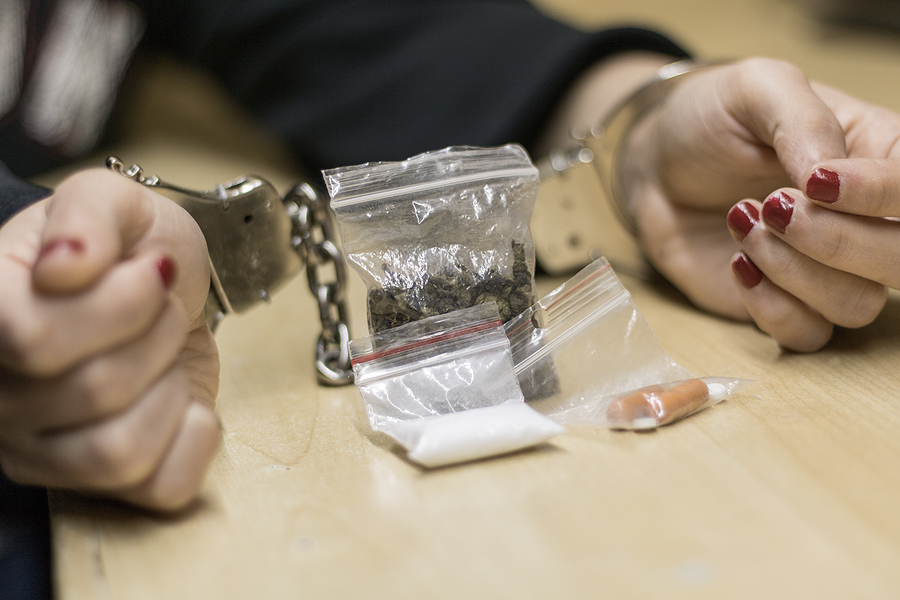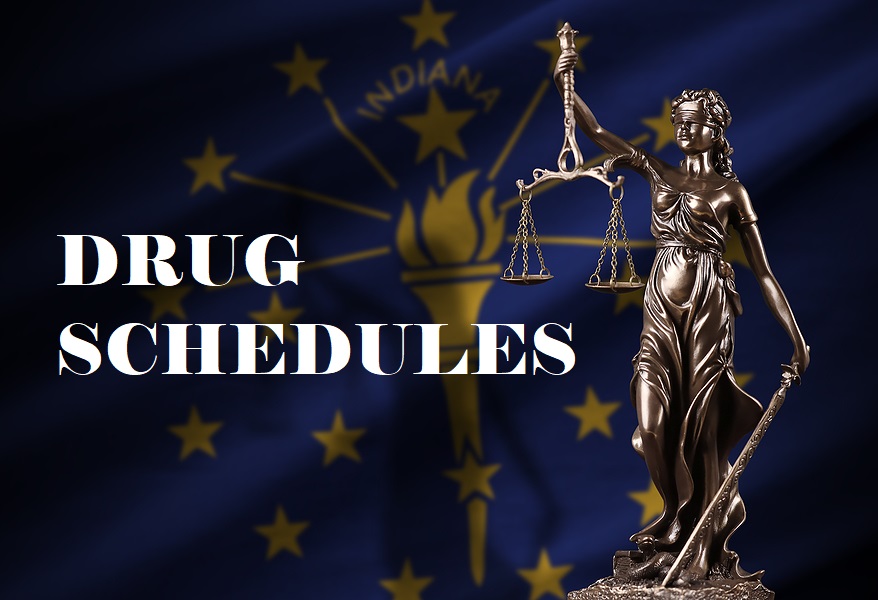While the topic might not appear to touch everyone’s daily life, drug possession laws in Indiana are far-reaching. Whether you’re a resident, law enforcement officer, or legal professional, understanding the intricacies of these laws can be critical. From recognizing the scope of drug schedules to comprehending potential penalties and available defense strategies, this guide aims to shed light on what you need to know about drug possession in the Hoosier state.
But first, why the fuss? Possession charges, depending on the substance and amount, can lead to fines, probation, and even incarceration. This is a topic that deserves our undivided attention – not as a sensational scare tactic, but as the foundation for informed and responsible citizenry in Indiana. In this expansive post, we’ll break down, step by step, what drug possession laws mean for you or a loved one, should you find yourself in the unfortunate circumstances of facing these charges.

Indiana’s Drug Possession Laws
Indiana’s drug possession laws are based on maintaining public safety and health, with an emphasis on reducing drug-related harm. The state classifies drugs into different schedules, determining the severity of possession charges and penalties based on potential for abuse, recognized medical benefits, and other factors.
Drug Schedules
Indiana adheres to a five-level drug schedule, each level representing a particular class of substances. Schedule I includes drugs with a high potential for abuse and no accepted medical use, such as marijuana and LSD. At the other end, Schedule V drugs are considered to have a low potential for abuse and accepted medical use, like certain cough medicines.
Drug Possession Charges
Your understanding of the drug schedule is crucial, as it dictates the legal consequences of possession. Higher scheduled drugs lead to more severe charges. For instance, possession of a schedule I or II controlled substance like heroin can result in a Level 5 felony charge, carrying a potential sentence of up to six years in prison and a fine of $10,000.
How Indiana Law Deals With Drug Possessors
The Indiana code provides specific definitions and penalties for drug possession. However, the state’s approach is not solely punitive; it offers diversion and drug court programming to support rehabilitation efforts.
Marijuana Possession and Indiana Law
Possession of marijuana is regulated by its own set of laws, with recent changes that have decriminalized small amounts for personal use. Despite this, penalties still exist, especially when dealing with greater quantities or in the presence of children or near schools.
Controlled Substances and Their Penalties
The possession of controlled substances, as defined by the schedules mentioned earlier, is strictly regulated. Understanding the nuances of these laws is critical to building a defense or discussing a plea.
Misuse of Prescription Medications
Dealing with prescription drugs, even those legally obtained, without a valid prescription can lead to criminal charges. The state pays close attention to the trafficking and abuse of such substances, particularly those classified under the controlled substance schedules.
Strategies for Defending against Drug Possession Charges
Being charged with drug possession is not the end of the story. There are legal avenues to explore for a robust defense, which includes challenging the legality of the search and seizure that led to the charges, disputing the actual possession or the substance in question, or claiming the drugs were someone else’s and not within your control.
Search and Seizure Challenges
Illegal searches that violate your rights can lead to a favorable outcome in your case. If drugs found in your possession were the result of an unlawful search and seizure, the evidence might be inadmissible in court.
Disputing Possession
Proving actual possession – meaning the drugs were on your person – can be a high bar for the prosecution. If the substances were in an area accessible to multiple individuals, it might be challenging to prove who had actual control over them.
Substance Disputes
The state must prove beyond a reasonable doubt that the substance in question is the controlled substance they claim it to be. This can include challenging the accuracy of drug tests, especially in cases where only a small amount is present.
The “It’s Not Mine” Defense
While this can be more difficult to prove, establishing that the drugs didn’t belong to you and were not in your control can be a valid defense. Typically, this argument should also provide a plausible explanation of why you were in possession of the substance or how it ended up where it was found.
Indiana Drug Court: A Path to Rehabilitation
The Indiana drug court program offers an alternative to traditional sentencing, focusing on rehabilitation and treatment. Entering a drug court program, if eligible, could lead to a reduction or even dismissal of charges upon successful completion.
Eligibility and Requirements
Eligibility requirements for drug court include certain criminal history criteria and a substance abuse assessment. The program requires regular court appearances, random drug testing, and active participation in a treatment plan.
Benefits of the Drug Court Program
Participation in drug court can lead to reduced charges, shorter sentences, or even the dismissal of charges. The program emphasizes recovery and skill-building to address the root causes of substance abuse, offering a more holistic approach to drug-related crime.
Moving Forward After a Criminal Charge for Drugs
When it comes to drug possession charges, knowledge truly is power. This guide provides a solid foundation for understanding what you might face and how to begin navigating the complex legal waters. Remember that each case is unique, and consulting with a qualified criminal defense lawyer will be invaluable.
Contact a Legal Professional
If you or someone you know is facing drug possession charges, the best step is to contact an experienced and dependable criminal defense attorney. A legal professional can provide tailored advice, build a strategic defense, and guide you through the legal process with expertise.
Leverage Local Support and Resources
Local support groups, community organizations, and the Indiana drug court program are there to help individuals struggling with substance abuse. Utilizing these resources can not only strengthen your defense but also pave the way for a better, healthier future.
Stay Informed and Vigilant
The laws around drug possession can change, which is why staying informed and vigilant is crucial. Keep an eye on legislative updates and, when in doubt, seek clarity from knowledgeable legal sources.
Wrapping Up
By educating Hoosiers on the impact of drug possession laws, we’re empowering individuals to make conscious choices and understand their rights. This knowledge might mean the difference between a hefty legal battle and a second chance. For more specific guidance on your situation, it’s best to engage directly with a legal professional—because, in the case of drug possession charges, you never want to be without a knowledgeable ally.
Remember, this guide is just the beginning. The road ahead may be daunting, but arm yourself with information, seek support, and remember that every challenge also presents an opportunity for change. Act wisely, take charge of your path, and turn away from the shadows of substance abuse towards the brighter days ahead.
Looking for aggressive criminal defense that can get you the best possible outcome in court for your possession charges? Contact Attorney David E. Lewis at 317-636-7514 to speak with a seasoned Indianapolis criminal defense lawyer who can skillfully fight your drug possession charges in Indiana. Act now while there is still ample time to build your defense and secure your freedoms.
Related Posts:
What to Do If You’re Arrested for Drug Possession in Indiana
Where to Get Information About Indiana Drug Schedules and Categories
Can I Buy Marijuana in Michigan and Bring it Home to Indiana?

